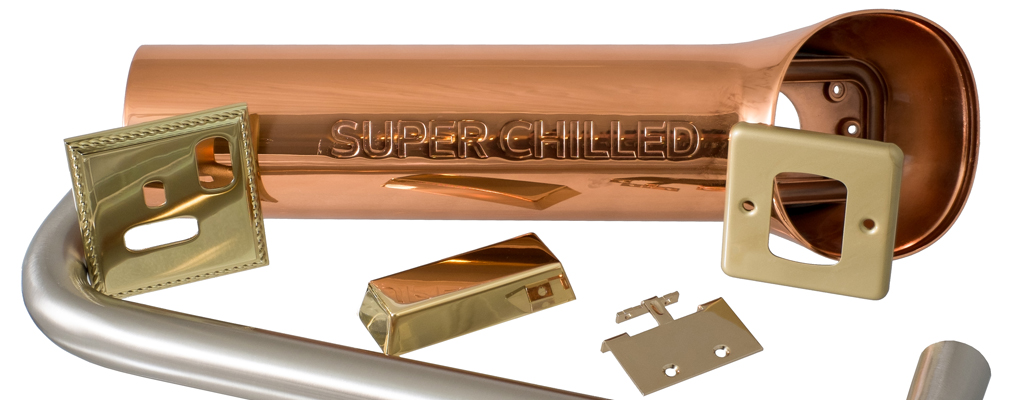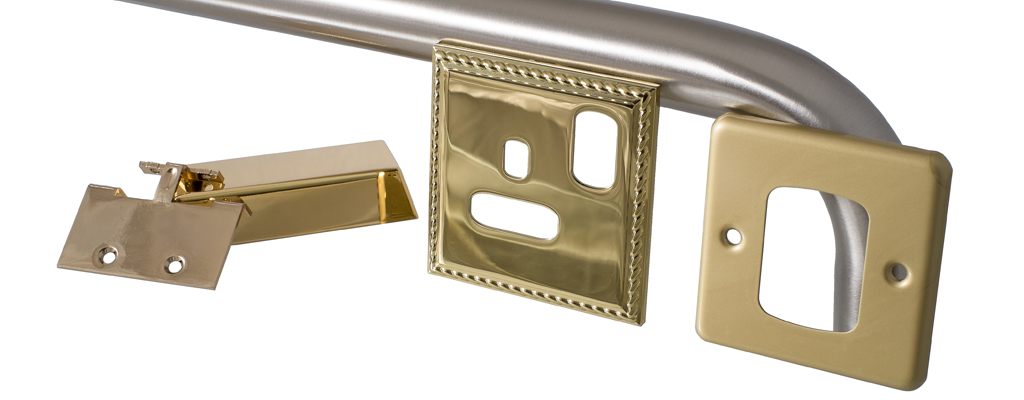Electrophoretic Lacquer
Midland Plating & Polishing offer Electrophoretic lacquer in satin and gloss finishes.
Electrophoretic lacquer is deposited from a solution of specially formulated polymer resin dissolved in water which is environmentally friendly.
An electrical circuit is made between the components and counter electrodes (normally made from stainless steel)
The polymer is electrostatically charged and when a voltage is applied the lacquer is attracted to the work and is deposited onto the surface.
The component is then rinsed in de-ionised water to remove excess lacquer solution and placed in an oven to be cured.
During the curing the resin flows and cross links to form a clear durable coating.
If zinc or aluminium castings are to be processed it is important the quality of the castings are of a good standard because any imperfections are not always evident (eg blistering, porosity and cold flow) until after curing due to the temperature of the oven which has to be approximately 130°C for 30 minutes to an hour depending on the density of the casting.
The coloured coatings are achieved with either an integral dye or post dye.
The integral dye is used for high volume components and the post dye gives more flexibility when numerous colours are required.
Simulated finishes such as brass, bronze, gold, satin chrome and bright chrome can be replicated.
The lacquer can be used directly onto zinc and also for aluminium finishing.
Electroplating with nickel or copper is generally used on components and in some cases metal polishing is required.
The trivalent chrome finish can also be clear lacquer coated to improve the corrosion resistance and darken the appearance.
The hardness of the coating is 5 – 6 H at full cure.
For more information on electrophoretic lacquer and electroplating contact Midland Plating & Polishing on 01902 421174 or use the contact form.


